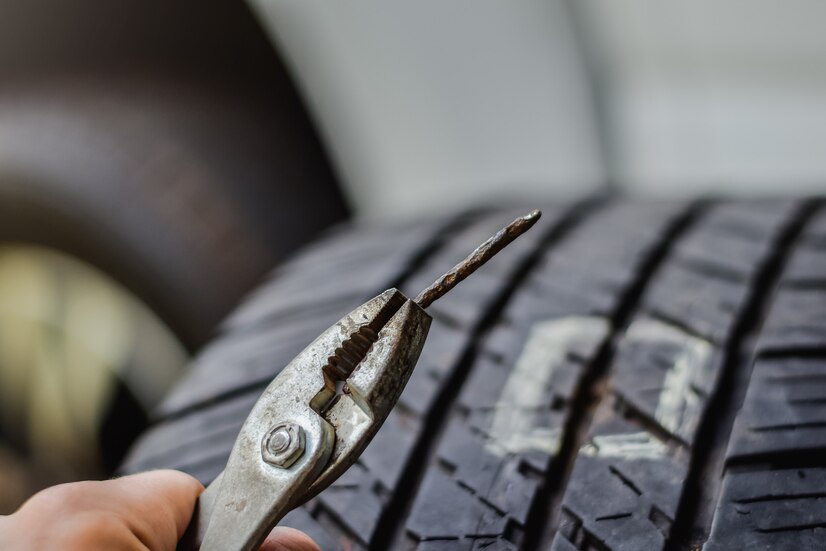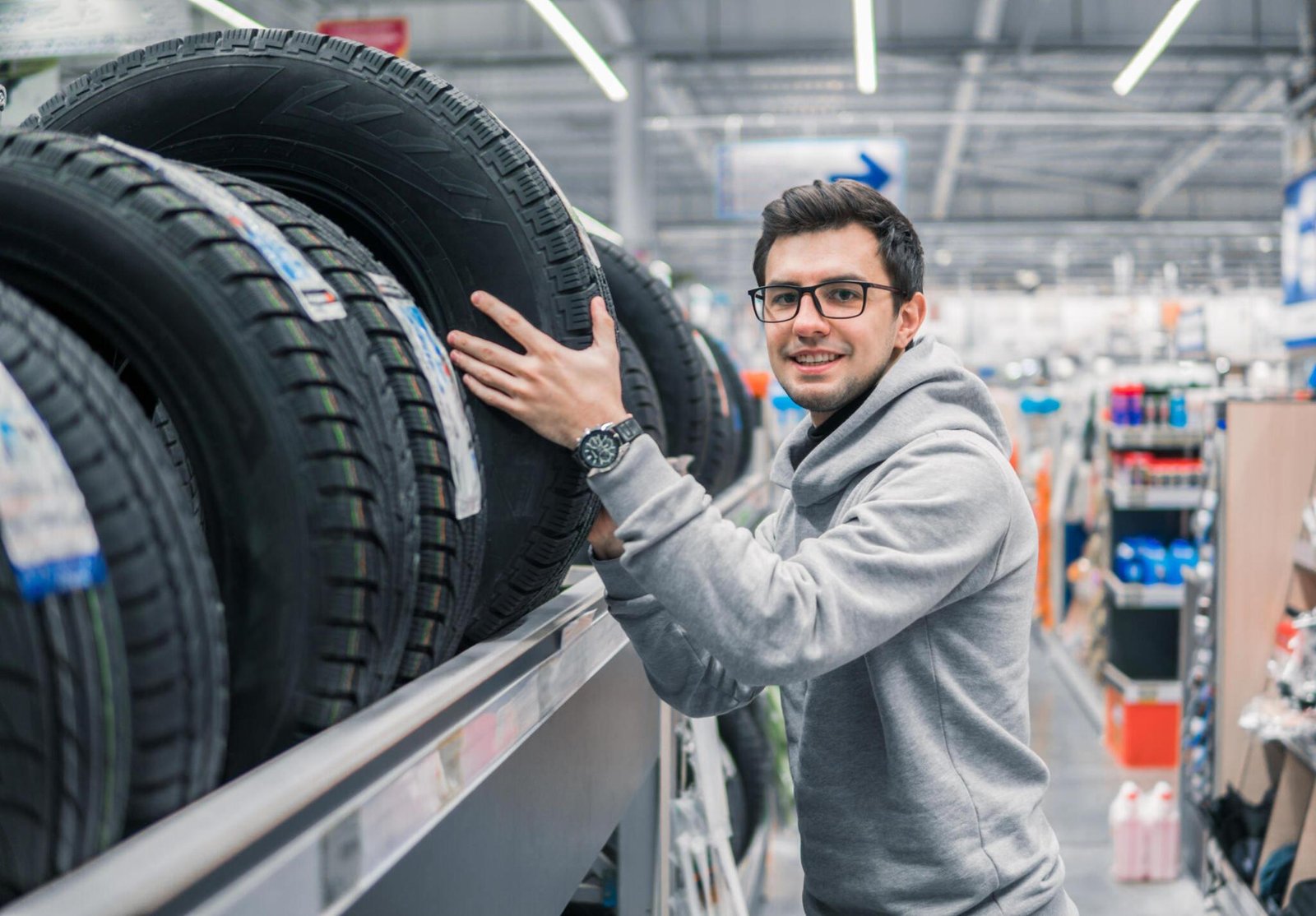Last Updated on April 21, 2024
The Ultimate Guide to Choosing and Maintaining The Horse Trailer Tires
It’s time to go camping in the backcountry. Thanks to their rugged horse trailer tires and off-road capabilities, your truck and trailer can make it part way, but it’ll just be you and your horse for the rest of it. Have you never tried camping with your horse? We have all the resources you need to get your hooved companion from the ranch to the woods. Take a day off from wrangling the cattle and enjoy the summer outdoors.
Horse Trailer Tires: More Than Just Rubber on the Road
Ensuring our beloved equine companions’ safety and comfort is paramount. One of the most crucial components of a horse trailer that’s often overlooked is its tires. Horse trailer tires are not just tires; they are specially designed to bear the weight and provide a smooth ride for live cargo.
Why Specialized Tires for Horse Trailers?
The average weight of a horse ranges from 900 to 2,200 pounds, and when you add the weight of the trailer itself, the tack, feed, and other essentials, you’re looking at a considerable load. Standard tires cannot handle such weights, especially over long distances or rough terrains. This is where horse trailer tires come into play. They are built with a stronger sidewall and higher load-bearing capacity, ensuring your equine friends are safe and comfortable throughout the journey.
Factors to Consider When Choosing Horse Trailer Tires
- Load Capacity: Always check the weight rating of the tire. It should comfortably handle the combined weight of the trailer and its occupants.
- Tire Size: Just like shoes, the right fit is essential. Ensure that the tire size matches your trailer’s specifications.
- Tread Pattern: Opt for tires with deeper treads as they offer better grip, especially in adverse weather conditions.
- Durability: Look for brands known for their long-lasting and high-quality tires. It might be tempting to save a few bucks on cheaper options, but in the long run, quality pays off.
Horse Trailer Tires
The first step to enjoying the backcountry on horseback is getting there. That means appropriately trailering your horse. As you will likely be going off-road for part of the trip, you’ll need versatile, long-lasting horse trailer tires, such as Velocity WR078. For your truck, we recommend Kanati Mud Hog tires for your offroading needs.
If you are new to towing trailers or need to brush up on some handy tips, check out our guide.
The Horse
Your horse should be adequately trained for the backcountry. The Back Country Horsemen of America suggests that that your horse be accustomed to standing tied for extended periods, have its halter broken, and be trained to accept a rope around or under the tail. Ideally, your horse will also be trained in loading and hauling, hobbles, crossing water and streams, picket ropes, crossing obstacles, and tolerate noises and sudden movements such as the crinkling of maps or the appearance of wildlife or other hikers.
Your horse should also not be at the beginning or end of a shoe cycle to help prevent a shoe from coming off. Even so, have an Easy Boot in case you need a replacement.
Weight Considerations
With a horse and trailer ready, it’s important to understand weight considerations. As the Trail Rider points out, horses take weight differently. A lighter horse may hold 30 percent of its weight, while a 1,300-pound horse might only be able to pack out 20 percent comfortably.
“A hoof pick, a curry comb, a picket stake and rope (which can double as a Highline), a pair of hobbles, an Easyboot (or other horse boot), and a basic equine first-aid kit are all relatively light items, but they add up,” Dan Aadland wrote for Trail Rider.
“Further, there are serious challenges in distributing 50 pounds of gear on your horse in a way that doesn’t dangerously impede his ability to negotiate the trail while dampening your ability to ride him well and safely.”
Weight distribution is essential in that it can hamper your horse’s movement if done improperly. Heavy items should be upfront in horn bags. The weight behind the saddle is behind your horse’s center of gravity and can also hamper mounting and dismounting. Western saddles, while heavier than English saddles, also distribute weight better.
Karen Bragg, president of Oregon Equestrian Trails, recommends cantle bags maxing out at about 20 pounds, saddlebags at 15 pounds, and horn bags up to 3 pounds.
Maintenance Tips for Longer-Lasting Tires
- Regularly check the tire pressure and ensure it’s within the recommended range.
- Rotate the tires periodically to ensure even wear.
- Inspect for any visible damages, cuts, or punctures.
- Avoid overloading the trailer.
- Store the trailer in a shaded area when not in use to prevent tire degradation due to UV rays.
What You Need for Horse Trailer Tires
- Finally, as Aadland mentioned, you will need items for taking your horse into the backcountry, all while being mindful of weight.
- Adequate but minimal clothing is required. Blankets may also be a must, depending on the season and location.
- Instead of a tent, a lightweight tarp shelter can serve the same purpose. Bivy sacks can replace sleeping bags.
- Karen Bragg repackages food she is bringing to further lighten the load for her horse. Allowing your horse to graze will also alleviate weight.
- Water for at least a day is needed, though erring on caution is advised. A small, alcohol-powered camp stove is also recommended unless you are highly confident in making and using a fire for food.
Enjoy the Outdoors
With the right horse trailer tires, adequately trained horse, and essential items adequately packed and distributed across multiple bags, all that’s left is to choose a spot, drive out to a base camp, and ride in. From there, you should be all set to enjoy the great outdoors with your trusty steed.
Conclusion
Horse trailer tires play a pivotal role in ensuring the safety and comfort of your horses during transit. Investing in high-quality tires and regular maintenance not only extends the life of the tires but also offers peace of mind, knowing that your precious cargo is safe.
Ensuring our equine friends’ safety and comfort during transportation is paramount. Investing in the right horse trailer tires is vital to guaranteeing this assurance.
With proper tire selection and regular maintenance, horse enthusiasts can be confident in providing a smooth and secure journey for their beloved companions. Always prioritize quality and diligence; your equine partners will undoubtedly appreciate the smooth rides ahead.
Ready to provide your horses with the smooth journey they deserve?
Please browse our selection of top-quality horse trailer tires at Tire Easy and enjoy unbeatable prices and expert advice.
Elevate your trailering experience now!
FAQs
What kind of tires do you put on a horse trailer?
For horse trailers, it’s essential to use specialized trailer tires, often labeled as “ST” (Special Trailer). These tires are designed to handle higher loads, ensure stability, and provide a smoother ride for the safety and comfort of the horses. They differ from regular vehicle tires in their construction, sidewall stiffness, and weight distribution capabilities.
What size tires go on a horse trailer?
The appropriate size for horse trailer tires largely depends on the trailer’s design, weight capacity, and manufacturer’s recommendations. Standard sizes include 15-inch and 16-inch diameter tires. Always refer to the trailer’s owner manual or the information placard located on the trailer to determine the correct tire size.
What are the two types of trailer tires?
The two primary types of trailer tires are radial and bias-ply. Radial tires have cords that run perpendicular to the direction of travel, providing flexible sidewalls, longer tread life, and better heat dissipation. In contrast, bias-ply tires have cords that run at a diagonal angle, offering a stiffer sidewall and typically a lower cost but may wear out faster than radials.
What factors should I consider when selecting tires for my horse trailer?
When selecting horse trailer tires, consider factors like load capacity, tire durability, size compatibility with your trailer, and tread design suited for various terrains. Choosing a trusted brand known for quality and longevity is vital.
Can I use regular vehicle tires for my horse trailer?
No, it’s crucial to use tires specifically designed for horse trailers. These tires are manufactured to handle the unique weight distribution and demands of transporting live animals, ensuring their safety and comfort.











